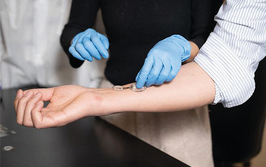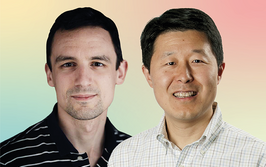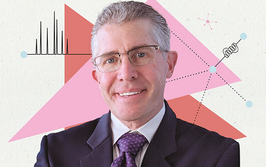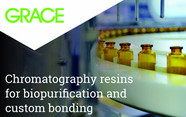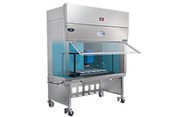Facundo M. Fernandez
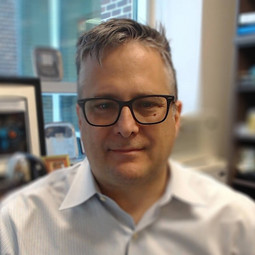
Regents’ Professor and Vasser-Woolley Chair in Bioanalytical Chemistry, Associate Chair for Research and Graduate Training, School of Chemistry and Biochemistry, Georgia Institute of Technology, USA
A mentor or educator who inspired you? I’ve had many excellent mentors, but two that stand out are Richard Zare (Stanford University) and Vicki Wysocki (Ohio State University) for their down-to-earth advice and inspirational approach. I will be eternally grateful for the time and energy they devoted to helping and guiding me.
Qualities of a successful mentor or educator? To listen to the mentee and try not to apply a universal solution to their needs. Each person is unique and so are their needs.
Attracting talent…What inspires me about analytical chemistry is that it has a direct application to solving real life problems, in addition to basic scientific questions. By showcasing this impact we will inspire future generations of scientists to follow a similar path than we have.
The decade’s most important development? One of my favorite developments has been high resolution workflows that couple hyphenated techniques (or spatially resolved techniques) with machine learning and artificial intelligence. Techniques such as deep learning and explainable AI will likely become commonplace in every analytical chemistry workflow in the near future – it is already the case in fields such as genomics, proteomics, and metabolomics.
Biggest challenge facing the field? We need to change our mindset from the univariate to the massively multivariate for measurements and diagnostics. Challenges in this area transfer to training our students – the curriculum is vastly outdated and we need to speed things up to meet the needs of 21st century professionals.
Missing from the toolbox? Analytical chemistry needs to be democratized. We can achieve incredible measurement feats, but the price of instruments is costly – increasing the divide between scientists that have access to high instrumentation and those that do not. We need to lower the cost of instrumentation without sacrificing performance. The driving force in instrumentation should be societal impact and widespread use alongside profitability.
Controversial opinion? Analytical chemistry has morphed into something far more complex than just chemical measurements – expanding into biology, biomedicine, and materials science. We cannot continue to operate with a 19th century definition of what analytical chemistry is. As analytical scientists, we have the unique privilege of informing decision makers. We now have much more data at our fingertips to inform those decisions, but we need to shift mentality and training approaches to stop taking one variable at a time and embrace massive datasets once and for all.
Book for scientists? A Philosophy of Scientific Instruments by Davis Baird – a very provocative book stating that scientific instruments themselves can express knowledge. In my opinion, this book is at the core of analytical and measurement science.
